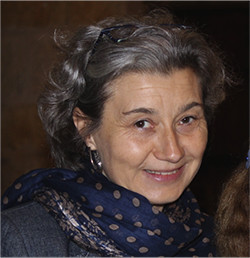Sophie Pennec
tells us about the Association Internationale des Démographes de Langue Française (AIDELF; International association of French-speaking demographers)

Sophie Pennec is a demographer and senior researcher at INED and she is also general secretary and treasurer of the AIDELF.
(Interview conducted in April 2016)
What are AIDELF’s missions and who are its members?
The Association Internationale des Démographes de Langue Française brings together demographers and specialists from other disciplines whose research encompasses demographic concerns. Currently AIDELF has nearly 300 members from approximately 60 countries; it promotes demography and demography applications and diffuses research findings on populations. The association promotes the use of French in international meetings, scientific exchanges and publications.
Every two years, AIDELF organizes an international conference in French on an important current population studies issue or topic. Previous conference topics include Trajectoires et Âges de la vie [Trajectories and life stages] (Bari, Italy, 2014); Démographie et Politiques Sociales [Demography and social policy] (Ouagadougou, Burkina Faso, 2012); Relations intergénérationnelles. Enjeux démographiques [Intergenerational relations: demographic issues] (Geneva, Switzerland, 2010); Démographie et Cultures [Demography and cultures] (Québec, Canada, 2008) and Population et travail [Population and work] (Aveiro, Portugal, 2006). The next conference, entitled Configurations et dynamiques familiales [Family configurations and dynamics], will be held in Strasbourg, 21-24 June 2016.
What are the aims of this year’s conference?
This 19th AIDELF conference will present innovative research on families that analyses them from the perspective not only of the individuals—adults and children—who compose them but as wholes and networks as well. Participants will also be presenting analyses of family dynamics, a term referring to a multitude of processes occurring on distinct temporal scales: over individuals’ life stages and trajectories or from one generation to another, over the long period in which cultural, social, occupational and linguistic practices are transmitted.
The conference is an occasion to compare different approaches to the family and family roles: the family as one social institution among others and the family as a framework for specific relationships. Families can be a source of support and a place of refuge; they are also a locus of power and, in some cases, inter-member violence. In this sense, they involve social and political regulation of extremely varied forms. International comparisons of concepts and methods will be of central concern along with comparisons of concrete situations.
The first day of the conference, the host country day, will focus on training in demography. The day’s activities will be organized by INED and a number of university teaching and research centres associated with the Institute or partners in the iPOPs laboratory of excellence. There will be round-table discussions, posters and videos on training and job possibilities for graduates with a degree in demography.
What role does INED play in this association?
AIDELF has received considerable institutional and financial support from INED since its founding. The Institute provides a half-time assistant and an office, as well as precious funding for day-to-day association management and conference organizing.
